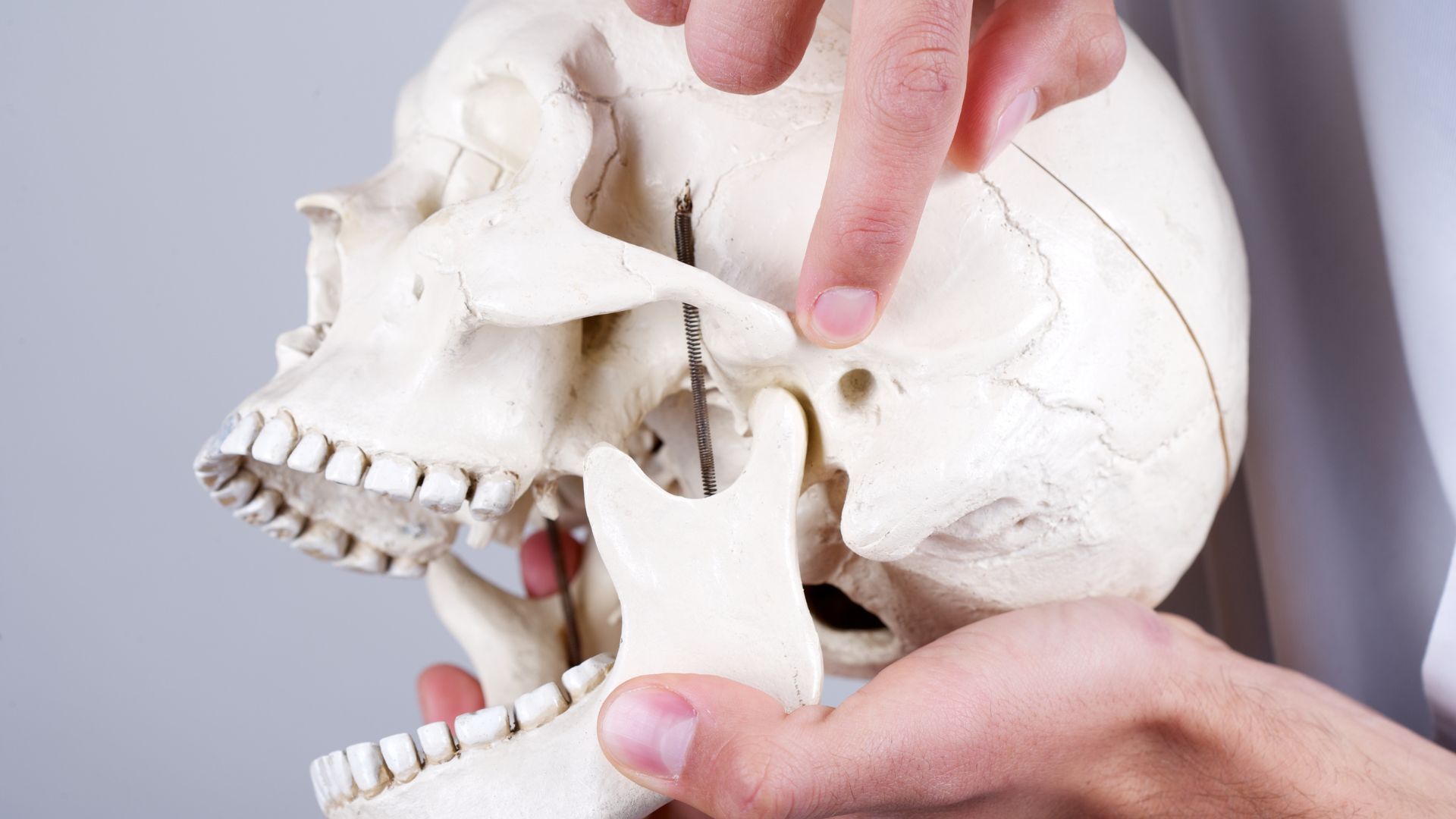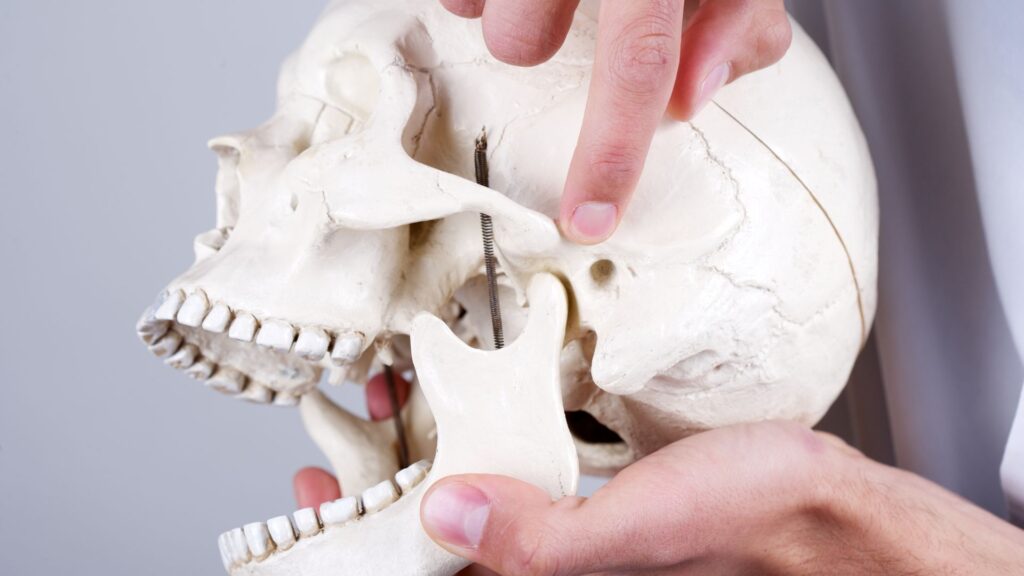TMJ therapy is a treatment approach that aims to relieve pain and dysfunction in the temporomandibular joint and surrounding structures. For patients, this can be a crucial measure to improve their quality of life, especially if they suffer from complaints such as jaw pain, tension in the face, headaches, neck or back pain as well as clicking or blockages in the jaw.
Treatment usually begins with a thorough examination to determine the causes of the symptoms. These can be many and varied, e.g. misaligned teeth, stress, teeth grinding (bruxism) or muscle tension. The treatment is customized and can include various measures, such as
- Bite splints: These relieve the jaw joint and chewing muscles and often prevent unconscious teeth grinding.
- Manual therapy: Special physiotherapy techniques are used to relieve tension and improve the mobility of the temporomandibular joint.
- Exercises: Patients learn specific exercises to relax the muscles and stabilize jaw function.
- Stress management: Techniques such as relaxation training or psychotherapy can be helpful for stress-related complaints.
- Dental interventions: In some cases, the bite may need to be adjusted by dental procedures.
For patients, TMJ therapy often means noticeable relief of symptoms and an improvement in their well-being. However, it also requires cooperation, e.g. regular wearing of splints or performing exercises. The success of the therapy depends on close cooperation between the patient, dentist, physiotherapist and, if necessary, other specialists.












